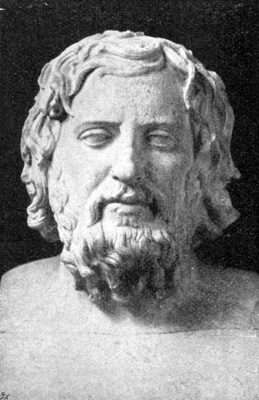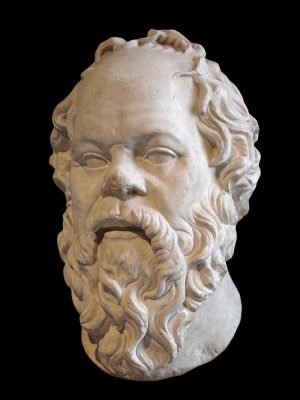
Xenophon was an ancient Greek philosopher and a military leader. He was also a student of the philosopher Socrates. According to one biography about Xenophon, Socrates met him in a narrow alley and set his cane to block Xenophon’s way. Socrates asked him where he could buy some items, to which Xenophon replied. Then Socrates asked where men become honorable and good. Xenophon could not answer quickly as he was puzzled by the question. Socrates saw Xenophon’s confused face, so he said, “Follow me and learn.” Since then, Xenophon had been a student of Socrates. He took notes of Socrates’ words and compiled them in his book, Memorabilia. Today, the Memorabilia is famous for containing Socratic dialogues put together by a student who admired his teacher. In this work, Xenophon lays out Socrates’ moral beliefs and discusses why the accusation against him as a corrupter of youth was distorted.
In his work, Apology, Xenophon portrayed the defense of Socrates. Xenophon was not present at the trial because of military commitments, but this did not stop him from writing about his teacher with high regard. In another of Xenophon’s Socratic dialogues, Symposium, he has Socrates as the main driver of the conversation at a dinner party. The conversation centers on the things that the guests are most proud of. Socrates is most proud of his skill at match-making because he says that people who are matched appropriately in marriages foster friendships between cities. In Xenophon’s Oeconomicus, the dialogues focused on farming and the management of the household. Another of Socrates’ students, Plato, has his own works of Socratic dialogues, and together with those of Xenophon’s, these are the only surviving literary records that offer the modern world a glimpse into the thoughts of Socrates.
